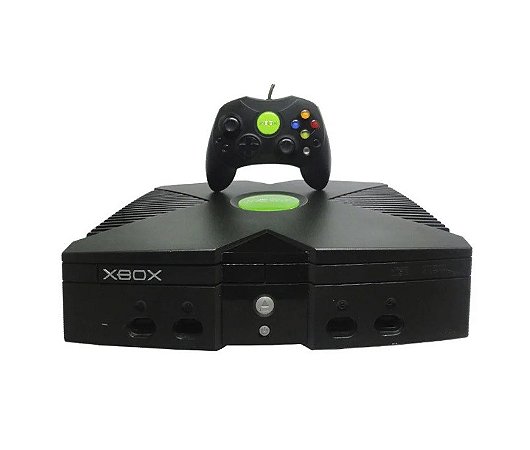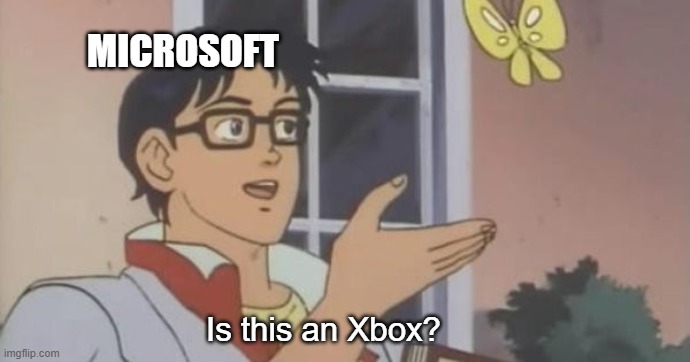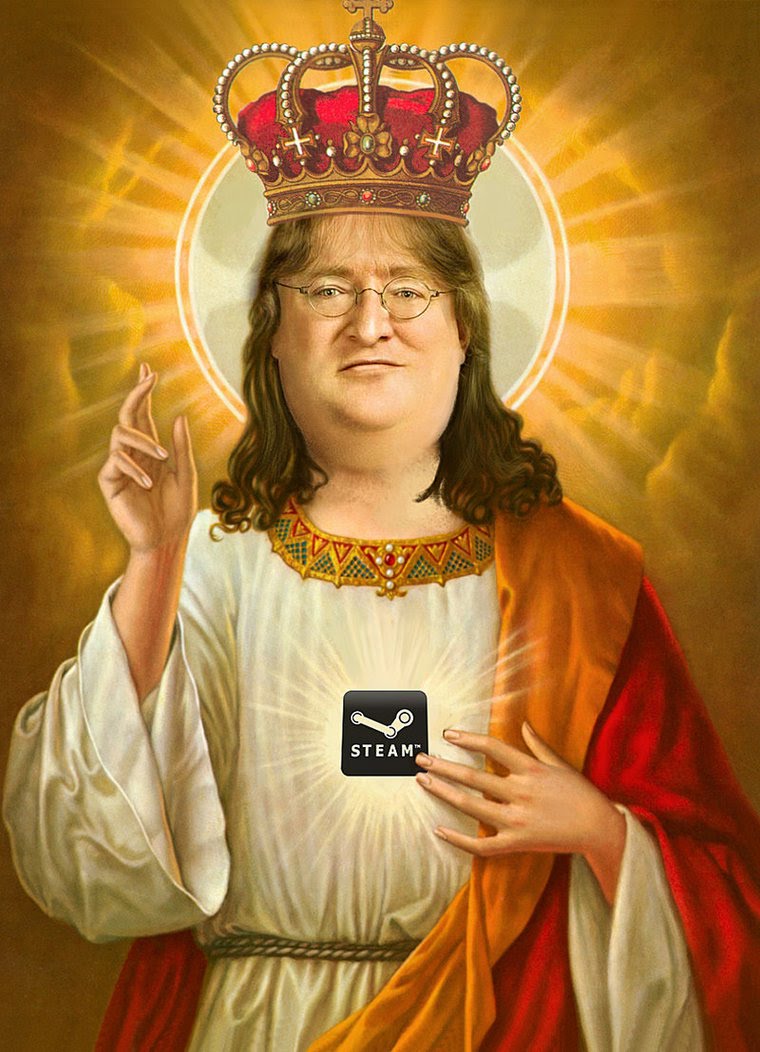Topher
Identifies as young
It sure looks like the next Xbox is going to be different, as Microsoft competes more with Steam.
Microsoft's "This is an Xbox" marketing campaign in November always felt a little too early. If you ask a friend or family member what an Xbox is, the response is likely going to be "it's a game console." Xbox is ingrained in popular culture as a box under your TV that you play games on, but Microsoft's ads over the past six months have been attempting to redefine the Xbox as a platform that spans across phones, laptops, TVs, handheld gaming PCs, and even VR headsets.
The ads did a great job of drawing attention to the platform, but the perception of the Xbox brand as just a console is still a huge challenge that Microsoft needs to overcome if its latest strategy is going to be successful. I can already sense some trouble ahead.
Ever since Microsoft unveiled its ROG Xbox Ally handheld devices earlier this month, I keep hearing from friends that are asking about an "Xbox handheld." YouTubers with millions of followers have positioned these handheld gaming PCs as "the first Xbox handheld," which is true if you believe in Microsoft's marketing, but false in reality because they don't natively run Xbox games, only PC versions.
Microsoft's answer to this potential confusion is that the Xbox Ally devices will be able to stream your library of Xbox games from the cloud or another Xbox console. That's not the type of experience I want when I'm spending hundreds of dollars on a piece of hardware that's capable of running games without an internet connection. In reality, I get the sense that Microsoft is willing to gamble on the potential confusion here, because what it really wants to do is turn Xbox into Steam.
The Xbox Ally devices are the beginning of a next-generation gaming platform — a platform that looks increasingly like it will revolve around Windows. Xbox president Sarah Bond confirmed last week that Microsoft's next console is "not locked to a single store," just like Windows isn't. Bond went even further, revealing that Microsoft wants to ensure "Windows is the number one platform for gaming."
Microsoft has also started calling the Xbox app on Windows simply "Xbox PC," in a clear bid to position it as a Steam competitor or alternative. This Xbox PC branding has appeared in trailers for games in recent weeks, but even Microsoft can't decide whether it's "Xbox PC" or "Xbox on PC" as it has used both recently. Either way has risk: Microsoft rebranded its Xbox Game Pass for PC subscription to just PC Game Pass four years ago because people were getting confused, so Xbox PC feels like it could be another source of confusion.
Bond's video also shed some light on how the Xbox PC initiative will allow you to play Xbox games. While Bond largely talked about an AMD partnership for co-engineering silicon, she also confirmed that this next generation of Xbox devices includes "maintaining compatibility with your existing library of Xbox games." That's a promise that Microsoft hasn't been able to deliver for the Xbox Ally devices, and it makes it seem like the company is confident it will deliver some form of Xbox game emulation on Windows for its next generation of devices.
Bond's video wasn't the only interesting Xbox release last week. AMD CEO Lisa Su also appeared in a short video and essentially laid bare Microsoft's next-gen Xbox strategy: "Moving forward, AMD will go beyond building custom chips for Xbox consoles to designing a full roadmap of gaming-optimized chips, combining the power of Ryzen and Radeon for consoles, handhelds, PCs, and the cloud," Su said.
That sure sounds like AMD and Microsoft are co-engineering chips for Microsoft's own next-gen Xbox console, as well as third-party devices that will also be branded as Xbox consoles. Su also specifically revealed these chips will include the hardware support needed for backward compatibility, which suggests that you'll need one of these chips for whatever emulation solution Microsoft is working on. I fully expect these next-gen chips will also form the basis for how Microsoft plans to license the software powering this Xbox experience to OEMs.
It feels like this future work with AMD is really what Microsoft means when it says, "This is an Xbox." It's an ambitious vision where Xbox games can be played across multiple devices, all with cloud saves so you can pick up where you left off. It's also a clear reaction to SteamOS and the fact that OEMs are starting to show interest in Valve's efforts to span its game library across console-like devices.
The challenge for Microsoft is making its own vision a reality and learning from its mistakes of challenging Steam in the past. In 2006, Microsoft cofounder Bill Gates outlined a similar vision for Xbox dubbed "Live Anywhere," where Xbox experiences would come to Windows-based PCs. It was a response, at the time, to Valve's launch of Steam a few years prior.
Microsoft launched its Games for Windows Live initiative with Windows Vista in 2007, designed as a way to unify the gaming experience across PC and Xbox 360 with achievements, online multiplayer, a friends list, and marketplace. Microsoft shut down the service six years later, after lackluster ports of Xbox titles and DRM mechanisms left PC gamers building up their library in Steam instead.
Nearly 20 years later, a lot of what Microsoft is saying today sounds like Bill Gates' vision for Windows and the Xbox 360. The big difference this time around is that Microsoft isn't in a position of strength in the console market like it was with the Xbox 360. That means it has to take a more open approach to overhaul what an Xbox is, like embracing rival stores on its next-generation devices or allowing OEMs to build their own Xbox devices. Microsoft's opportunity here is to boot millions of Xbox devices into its own Xbox PC store and try to sell games and subscriptions directly to people instead of them turning to Steam.
There's a clear revenue benefit to Microsoft here, especially if it can convert even a small percentage of Steam users into buying games from its own store instead of handing over a 30 percent cut to Valve. It will all come down to the console-like experience, with the "Xbox full screen experience" on Windows being a big first test.
If Microsoft can pull off this big bet of changing what an Xbox is, then these "This is an Xbox" ads will look like a prophecy. If it fails, then Microsoft risks damaging its last successful consumer brand, potentially beyond repair. The stakes for Xbox couldn't be higher.
Tom Warren stole this kid's line...

Microsoft's "This is an Xbox" marketing campaign in November always felt a little too early. If you ask a friend or family member what an Xbox is, the response is likely going to be "it's a game console." Xbox is ingrained in popular culture as a box under your TV that you play games on, but Microsoft's ads over the past six months have been attempting to redefine the Xbox as a platform that spans across phones, laptops, TVs, handheld gaming PCs, and even VR headsets.
The ads did a great job of drawing attention to the platform, but the perception of the Xbox brand as just a console is still a huge challenge that Microsoft needs to overcome if its latest strategy is going to be successful. I can already sense some trouble ahead.
Ever since Microsoft unveiled its ROG Xbox Ally handheld devices earlier this month, I keep hearing from friends that are asking about an "Xbox handheld." YouTubers with millions of followers have positioned these handheld gaming PCs as "the first Xbox handheld," which is true if you believe in Microsoft's marketing, but false in reality because they don't natively run Xbox games, only PC versions.
Microsoft's answer to this potential confusion is that the Xbox Ally devices will be able to stream your library of Xbox games from the cloud or another Xbox console. That's not the type of experience I want when I'm spending hundreds of dollars on a piece of hardware that's capable of running games without an internet connection. In reality, I get the sense that Microsoft is willing to gamble on the potential confusion here, because what it really wants to do is turn Xbox into Steam.
The Xbox Ally devices are the beginning of a next-generation gaming platform — a platform that looks increasingly like it will revolve around Windows. Xbox president Sarah Bond confirmed last week that Microsoft's next console is "not locked to a single store," just like Windows isn't. Bond went even further, revealing that Microsoft wants to ensure "Windows is the number one platform for gaming."
Microsoft has also started calling the Xbox app on Windows simply "Xbox PC," in a clear bid to position it as a Steam competitor or alternative. This Xbox PC branding has appeared in trailers for games in recent weeks, but even Microsoft can't decide whether it's "Xbox PC" or "Xbox on PC" as it has used both recently. Either way has risk: Microsoft rebranded its Xbox Game Pass for PC subscription to just PC Game Pass four years ago because people were getting confused, so Xbox PC feels like it could be another source of confusion.
Bond's video also shed some light on how the Xbox PC initiative will allow you to play Xbox games. While Bond largely talked about an AMD partnership for co-engineering silicon, she also confirmed that this next generation of Xbox devices includes "maintaining compatibility with your existing library of Xbox games." That's a promise that Microsoft hasn't been able to deliver for the Xbox Ally devices, and it makes it seem like the company is confident it will deliver some form of Xbox game emulation on Windows for its next generation of devices.
Bond's video wasn't the only interesting Xbox release last week. AMD CEO Lisa Su also appeared in a short video and essentially laid bare Microsoft's next-gen Xbox strategy: "Moving forward, AMD will go beyond building custom chips for Xbox consoles to designing a full roadmap of gaming-optimized chips, combining the power of Ryzen and Radeon for consoles, handhelds, PCs, and the cloud," Su said.
That sure sounds like AMD and Microsoft are co-engineering chips for Microsoft's own next-gen Xbox console, as well as third-party devices that will also be branded as Xbox consoles. Su also specifically revealed these chips will include the hardware support needed for backward compatibility, which suggests that you'll need one of these chips for whatever emulation solution Microsoft is working on. I fully expect these next-gen chips will also form the basis for how Microsoft plans to license the software powering this Xbox experience to OEMs.
It feels like this future work with AMD is really what Microsoft means when it says, "This is an Xbox." It's an ambitious vision where Xbox games can be played across multiple devices, all with cloud saves so you can pick up where you left off. It's also a clear reaction to SteamOS and the fact that OEMs are starting to show interest in Valve's efforts to span its game library across console-like devices.
The challenge for Microsoft is making its own vision a reality and learning from its mistakes of challenging Steam in the past. In 2006, Microsoft cofounder Bill Gates outlined a similar vision for Xbox dubbed "Live Anywhere," where Xbox experiences would come to Windows-based PCs. It was a response, at the time, to Valve's launch of Steam a few years prior.
Microsoft launched its Games for Windows Live initiative with Windows Vista in 2007, designed as a way to unify the gaming experience across PC and Xbox 360 with achievements, online multiplayer, a friends list, and marketplace. Microsoft shut down the service six years later, after lackluster ports of Xbox titles and DRM mechanisms left PC gamers building up their library in Steam instead.
Nearly 20 years later, a lot of what Microsoft is saying today sounds like Bill Gates' vision for Windows and the Xbox 360. The big difference this time around is that Microsoft isn't in a position of strength in the console market like it was with the Xbox 360. That means it has to take a more open approach to overhaul what an Xbox is, like embracing rival stores on its next-generation devices or allowing OEMs to build their own Xbox devices. Microsoft's opportunity here is to boot millions of Xbox devices into its own Xbox PC store and try to sell games and subscriptions directly to people instead of them turning to Steam.
There's a clear revenue benefit to Microsoft here, especially if it can convert even a small percentage of Steam users into buying games from its own store instead of handing over a 30 percent cut to Valve. It will all come down to the console-like experience, with the "Xbox full screen experience" on Windows being a big first test.
If Microsoft can pull off this big bet of changing what an Xbox is, then these "This is an Xbox" ads will look like a prophecy. If it fails, then Microsoft risks damaging its last successful consumer brand, potentially beyond repair. The stakes for Xbox couldn't be higher.
Tom Warren stole this kid's line...






















